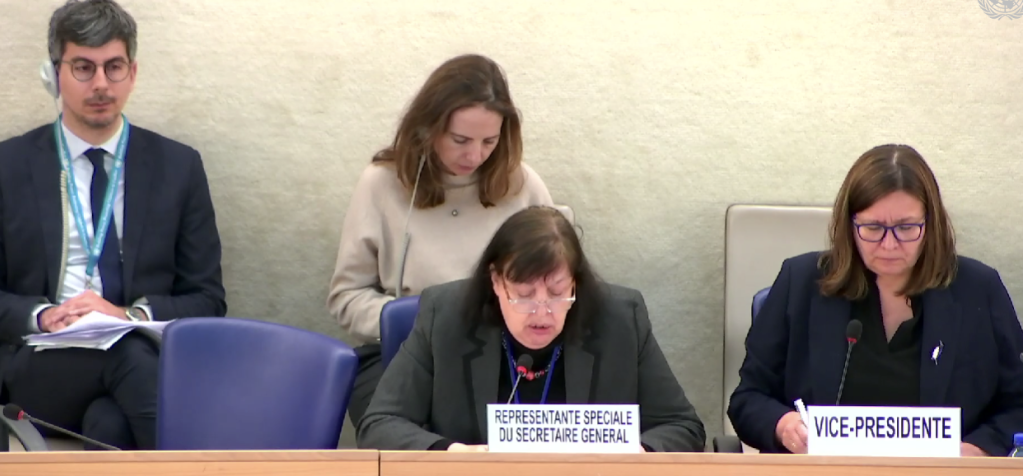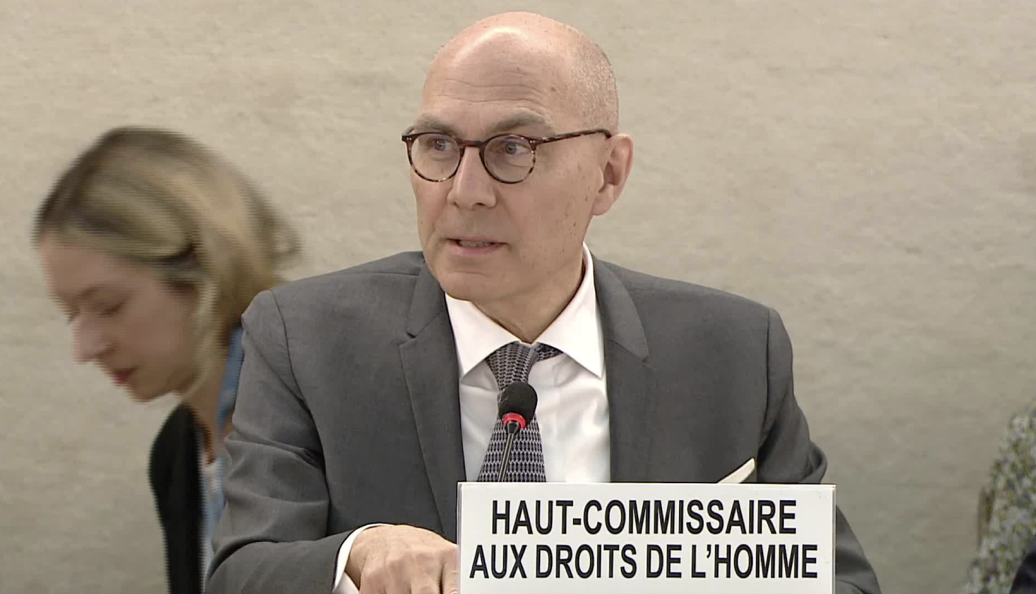HRC-58: Human Rights in Iran
Joint ID with the Special Rapporteur on the Islamic Republic of Iran and Independent International Fact-Finding Mission on the Islamic Republic of Iran
The 58th Session of the Human Rights Council
24 February - 4 April 2025
Item 4: Human Rights Situations that require the attention of the Council
By Lorenzo Bersellini / GICJ
Executive Summary
On 18 March 2025, the Human Rights Council convened during its 58th session to hold a joint interactive dialogue on the situation of human rights in Iran. One of the main themes that has been discussed was the increase in the use of the death penalty by Iranian authorities, which reached a new height last year. Moreover, reports of gender and sexual-based violence, including killings, arbitrary detention, and discrimination affecting women and girls as well as members of religious minorities were all brought forward by Ms. Mai Sato, the current Special Rapporteur (SR), and by Ms. Sara Hossain, Ms. Shaheen Sardar Ali, and Ms. Viviana Krsticevic, members of the Independent International Fact-Finding Mission (IFFM) in Iran.
Ms. Sato presented her first report (A/HRC/58/62) since assuming the mandate in 2024, whereas the IFFM exposed the findings of their latest report (A/HRC/58/63) focusing on the human rights violations and crimes against humanity committed by the State in response to the widespread protests headed by the “Women, Life, Freedom” movement in Iran since 2022.
Both the SR and the IFFM denounced the increased recurrence of the death penalty. More than 900 executions in 2024 alone have been registered, making Iran the highest per capita user of the death penalty. Of all these cases, only 10% were officially communicated by state channels, showing the lack of transparency signaled by the SR as a critical issue. The death penalty has been used as a way to silence dissent, including for children, and punish non-lethal crimes, including drug dealing.
The UN Human Rights Mechanisms also shed light on the systematic legal, economic, and political discrimination suffered by women and girls, as well as members of minority groups.. The unequal recognition of these categories of people in front of the law exposes them to further vulnerability.
During the debate, the Council was divided between delegates that applauded the SR and IFFM for their findings - calling on the Council to renew their mandate and to further investigate the human rights violations given the widespread report and alarming trends witnessed in the country - and those delegates that, instead, echoed Iran in denouncing the perceived politicization and instrumentalization of the Council by western states seeking to overthrow the current government.
Geneva International Centre for Justice (GICJ) welcomes the SR and IFFM for their reports that will serve as the basis for future accountability for the egregious crimes perpetrated by state authorities in Iran. GICJ is appalled by the widespread use of the death penalty, particularly when it comes to children. Furthermore, GICJ urges the government of Iran to grant full rights and protection to all its citizens, including women and girls and members of religious or ethnic minorities, unequivocally siding with the victims of the regime's violations.
To read the full report, please click the image below:








